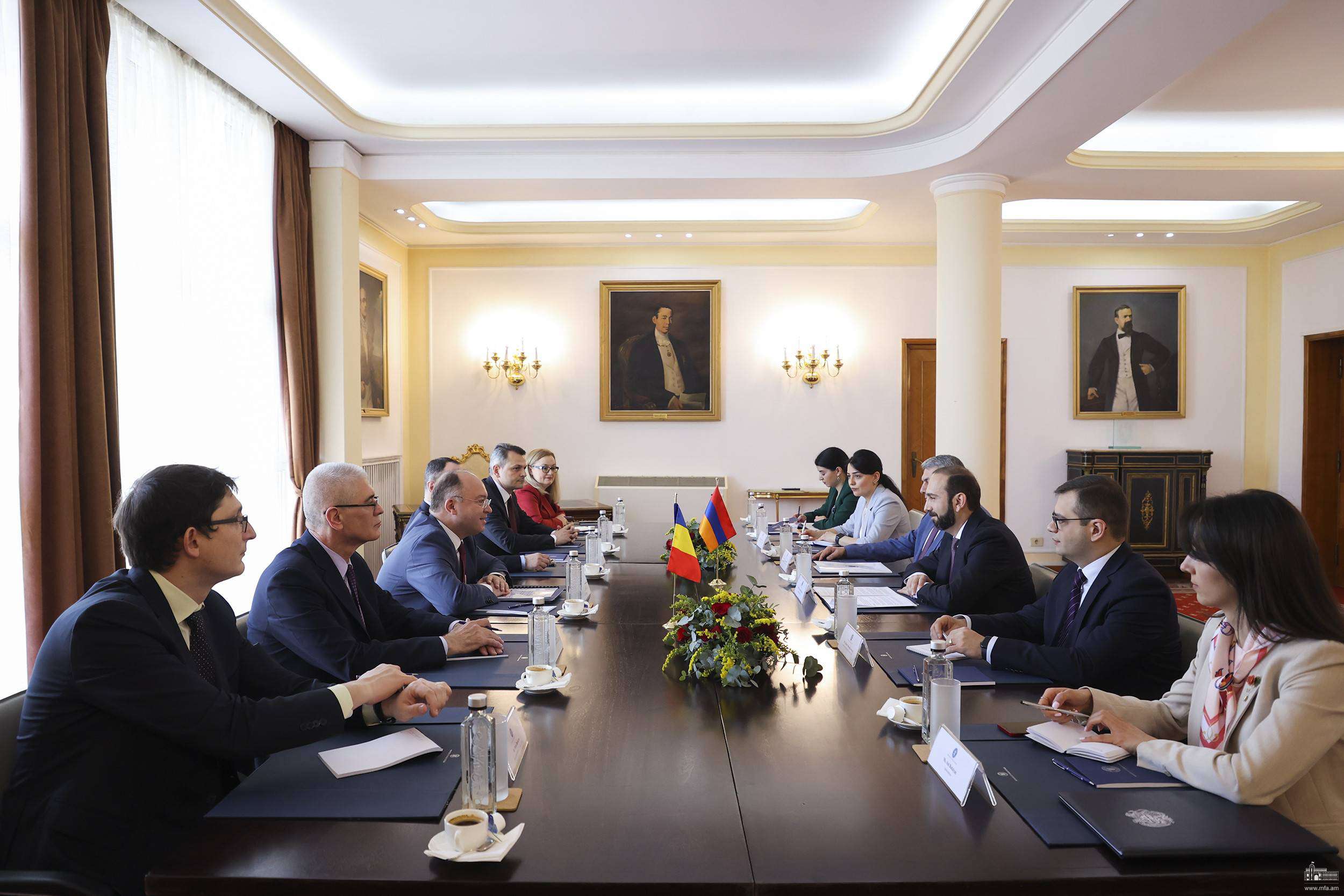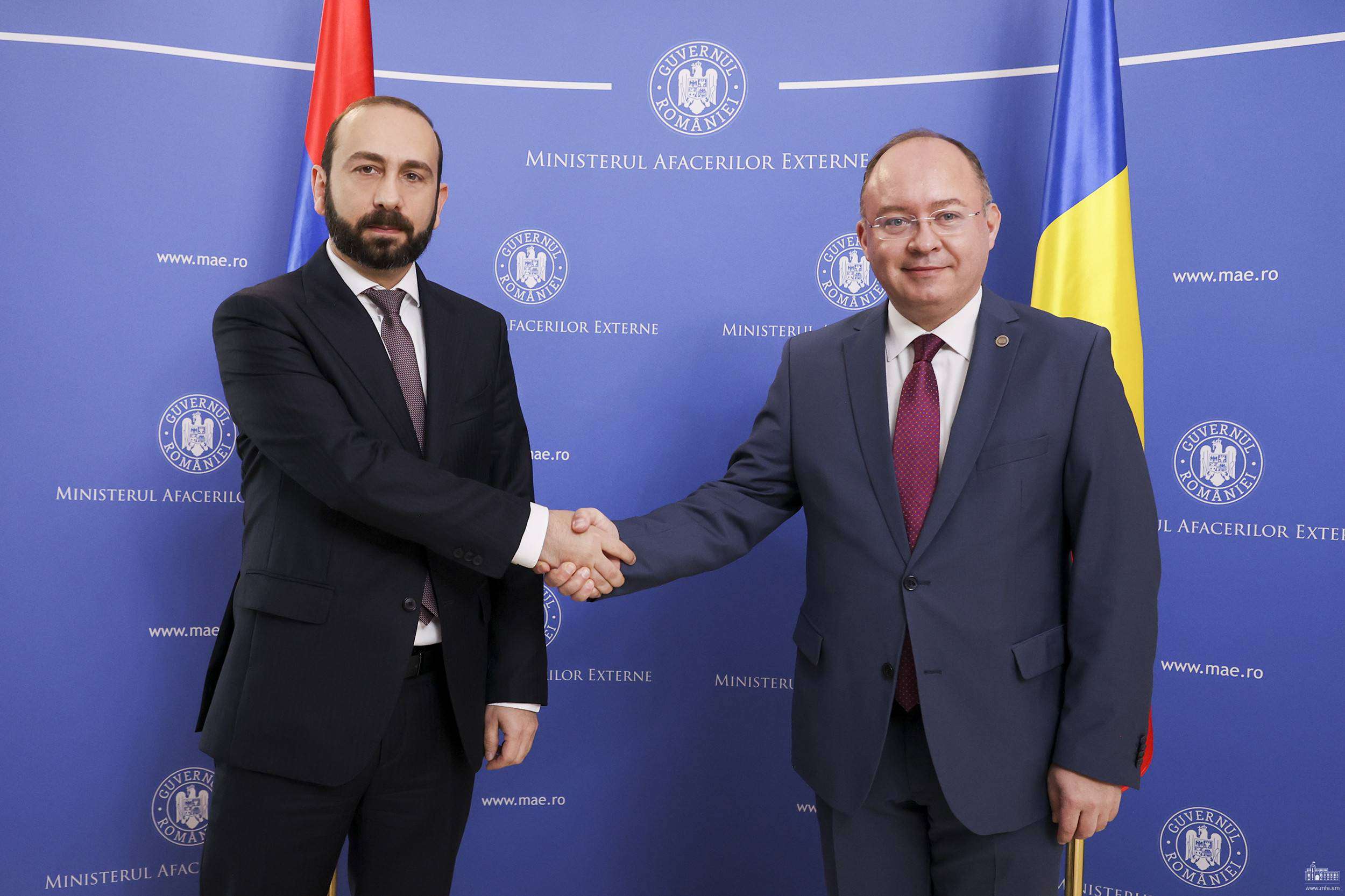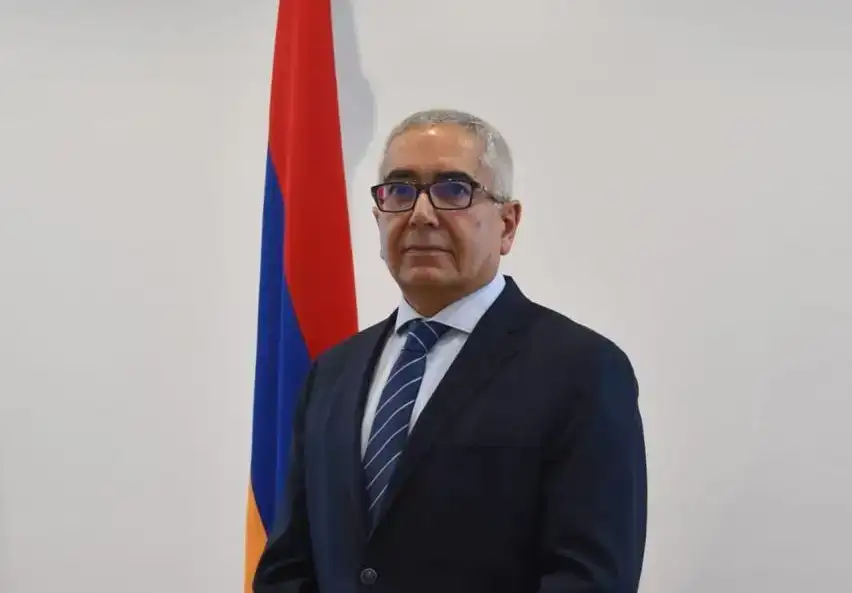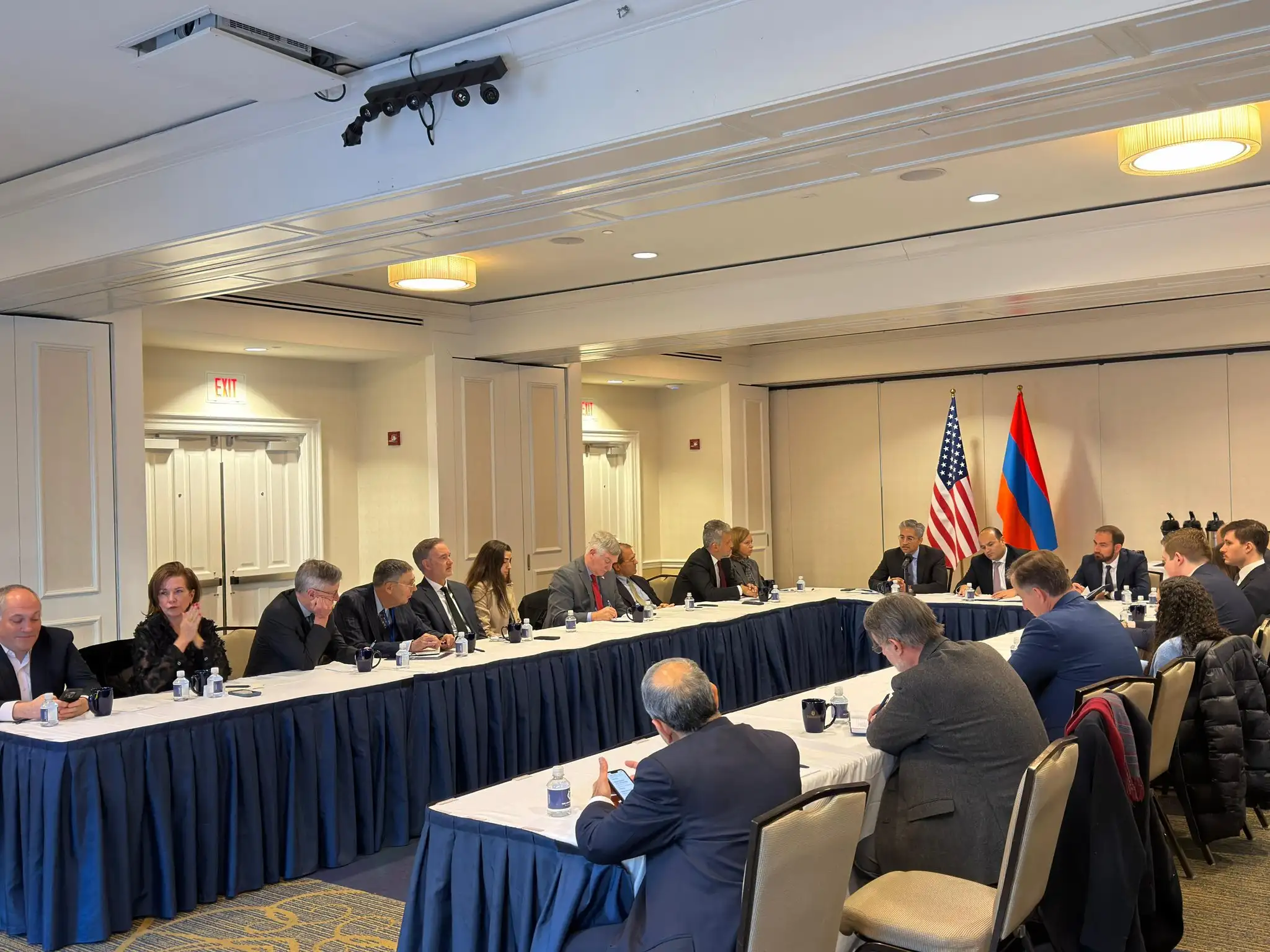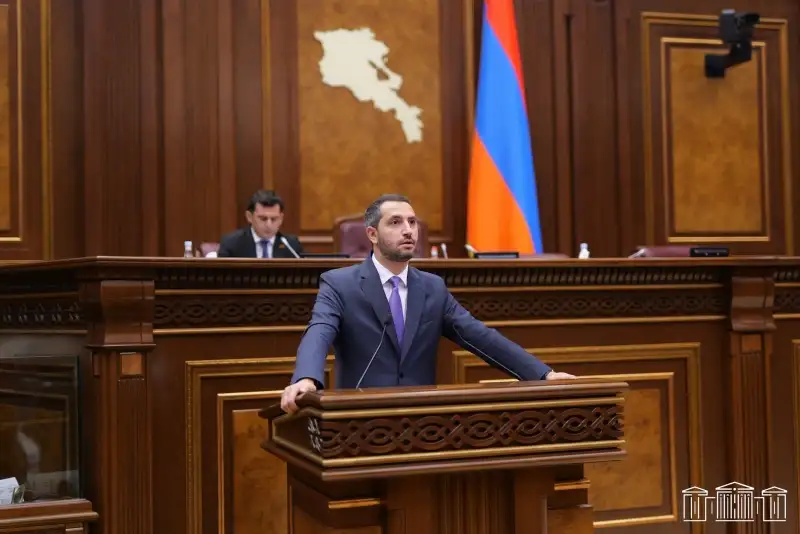On April 3, Armenian Foreign Minister Ararat Mirzoyan met with Romanian Minister Bogdan Aurescu. The meeting started with a private conversation and then continued in an expanded format with the participation of two delegations.
After the meeting, the ministers signed the "2023-24 action plan between the Ministry of Foreign Affairs of the Republic of Armenia and the Ministry of Foreign Affairs of Romania". In the presence of the ministers, the redemption of the joint Armenian-Romanian stamp dedicated to the famous Romanian-Armenian doctor Ana Aslan took place.
The Foreign Ministers of Armenia and Romania held a joint press conference, during which Minister Mirzoyan stated:
"Dear Mr. Minister,
Dear Colleagues,
First, I would like to thank my colleague, Minister Bogdan Aurescu, for his warm welcome and valuable discussions.
Today we had the opportunity to discuss a wide range of topics of bilateral cooperation between Armenia and Romania. We signed the 2023-2024 joint action plan between the two countries foreign ministries. Continuing our countries' path since independence, we expressed our apparent willingness to strengthen the bilateral agenda further. Further expanding the legal treaty base, holding frequent political consultations, and deepening cooperation in the cultural and scientific-educational spheres will undoubtedly serve this purpose. We expressed our readiness to take steps to realize the full potential of economic relations and business ties.
It should be noted that the bilateral relations between our two countries were formed through centuries-old ties between the Armenian and Romanian peoples. In this context, I would like to emphasize Armenians' important role and contribution to Romania and express gratitude to the Romanian authorities for their caring attitude toward the Armenian community and its cultural and religious heritage. One of its vivid examples is adopting the law "On declaring October 12 as the day of the Armenian language, alphabet, and culture in Romania".
Dear participants,
Turning to the Armenia-EU partnership, several topics of our expanding cooperation were on the agenda of the meeting, including the dialogue on Armenia-EU political and security issues and the effective implementation of the Armenia-EU Comprehensive and Enhanced Partnership Agreement. We also exchanged ideas on our interaction within the framework of the Eastern Partnership and the European Political Community.
I want to emphasize that immediately after Azerbaijan's aggression against Armenia in September 2022, the dispatch of EU observers to the Armenian side of the Armenia-Azerbaijan international border and the subsequent deployment of the EU's long-term civilian monitoring mission is an essential involvement of the EU in our region. We appreciate Romania's valuable contribution to the relevant EU discussions.
Dear Colleagues,
Continuing the topic of regional security and stability, we touched on the latest developments in the South Caucasus. I presented to my colleague the ontological challenges that threaten both the Republic of Armenia and the people of Nagorno Karabakh.
Unfortunately, Azerbaijan responded to the international community's calls to address the rights and security issues of the people of Nagorno Karabakh in 2022. since December, with the blocking of the Lachin Corridor, intimidation and other actions forced the Armenians of Nagorno-Karabakh to leave their homes and with a systematic policy of ethnic cleansing.
Among the targeted appeals and demands of the international structures, it is necessary to highlight the legally binding decision of the International Court of Justice against Azerbaijan on February 22. The court stated that there was an immediate threat of irreparable harm to the rights of Armenians within the framework of the Convention on the Elimination of All Forms of Racial Discrimination. It forced Azerbaijan to take all necessary measures to ensure the uninterrupted movement of people, vehicles, and goods in both directions through the Lachin Corridor.
I must mention that the illegal blocking of the Lachin Corridor in 2020 is not the only clear violation of the tripartite declaration of November 9. There is almost no provision in the statement that Azerbaijan does not violate. Along with the continuous holding of Armenian prisoners of war as hostages, as well as the demands for an extraterritorial corridor through the sovereign territory of the Republic of Armenia, Azerbaijan does not ensure "the return of internally displaced persons and refugees to the Nagorno Karabakh territory and adjacent regions under the supervision of the Office of the United Nations High Commissioner for Refugees."
Moreover, Azerbaijan continues to voice its hate speech and belligerent rhetoric at the highest level, carries out systematic aggressive actions on the ground, and occupies around 150 square meters of the sovereign territory of the Republic of Armenia.
Our partners, the international community, have an essential role to play, which can be implemented using appropriate tools and mechanisms, including sending a global fact-finding mission to the Lachin Corridor and Nagorno-Karabakh.
Dear Colleagues,
Armenia has repeatedly declared its readiness to hold a constructive dialogue with Azerbaijan in an environment free from hate speech, preconditions, and bellicose rhetoric to establish stable peace and security in the South Caucasus. Armenia has a strong political will to achieve peace and stability in the region, and despite all the difficulties, we continue negotiations with Azerbaijan in good faith.
Dear Mr. Minister,
Thank you once again for today's honest conversation. I am interested in continuing our dialogue to give new impetus to expanding the agenda of relations between our two countries.
And, in conclusion, dear Bogdan, I invite you to visit Yerevan at the earliest opportunity."
